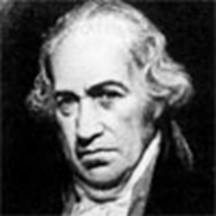Fahrenheit, Daniel Gabriel
Daniel Gabriel Fahrenheit (1686-1736), Polish-born Dutch physicist and engineer who invented the first accurate thermometer in 1724 and devised the Fahrenheit temperature scale, named for him. Fahrenheit's first thermometers contained a column of alcohol; he later substituted mercury for alcohol because its rate of expansion, although less than that of alcohol, is more constant. In order to reflect the greater sensitivity of his thermometer, Fahrenheit expanded Römer's scale so that blood heat was 90° and an ice-salt mixture was 0°; on this scale, freezing point was 30°. Fahrenheit later adjusted the scale to ignore body temperature as a fixed point so that the boiling point of water came to 212° and freezing point to 32°; this is the Fahrenheit scale still in use today. Thus, a 1.8° F temperature change corresponds to a 1.0° change on the Celsius scale. The Fahrenheit scale was widely used in Europe until a switch to the Celsius scale, but is still used by the general population for everyday temperature measurement in the United States.
Further Reading
Fahrenheit and Celsius Temperature Scales (National Aeronautics and Space Administration)
Inventors: The History Behind the Thermometer (About.com)
How Does the Thermometer Work? (California Energy Commission)
